Sea Turtle Camp Costa Rica
Overview
Our Costa Rica Sea Turtle Camp Adventure is an an ALL-GIRLS trip.
With 6 of the world’s 7 species found in Costa Rica, the beaches and waters are full of turtle observing opportunities, and we will take full advantage of this. As a small, intimate-sized group, we travel to the Caribbean Coast during one of the most active green sea turtle nesting aggregations in the world, we will assist a long-term research project with nightly beach patrols. Leatherbacks frequently ply these waters, and their nests will be hatching out around this time as well. This exclusive adventure will immerse like-minded teens in the local language, culture, and ecology with our team of trained professionals. This program is for the adventurous teen who is not afraid to get down and dirty!
We will start the trip off with a visit to La Calandria where we will learn about Costa Rica’s rich culture and natural environment through activities such as hiking the Monteverde Cloud Forest Reserve, learning about the history, tradition, and present-day production of Costa Rican coffee and chocolate, touring the countryside on horseback, and visiting a bat jungle! While here we will also participate in a zip-line tour through the cloud canopy of Monteverde. After departing Monteverde, we will be ferried to our small island community at the wildlife refuge, Laguna Urpiano, where they will be living the simple life and staying “off-the-grid” in this solar-powered community! It is here campers will receive turtle patrol training and then will spend the next week looking for tracks, nests, laying mothers, and hatchlings. We will work alongside other volunteers to patrol the beach for sea turtle nests, man a sea turtle hatchery, and participate in the care and study of recuperating adult turtles in the turtle rescue and rehabilitation program. Here, everything is done in shift work and we will be assigned shifts times each day. Shifts run 24 hours a day and campers can be assigned a shift at any time. After departing Laguna Urpiano, we will go rafting along the Pacuare River. Along the way, we will explore a rain forest ecosystem up close with naturalist-led hikes through the rain forest to visit some beautiful waterfalls.
Costa Rica is one of the safest and easiest international travel destinations in the world. It is a sustainable country, with no standing military, that focuses on creating greater equality of wealth among citizens and protecting their natural resources. Over a quarter of the country is set aside for conservation! With a modern international airport in San Jose and well-maintained highways, Costa Rica is very welcoming to tourists. Due to its friendly culture and “rich coastal” natural resources, Costa Rica is rated one of the hottest eco-travel destinations in the world! This program is designed for rising 10th-12th grade girls who are passionate about sea turtle conservation and looking for a tropical adventure abroad. Join us on our next trip as we:
- Receive sea turtle patrol training
- Perform sunrise and nocturnal nest walks
- Collect data on nesting females
- Raft down the Pacuare River
- Hike with a naturalist through the rainforest
- Zip-line through the cloud canopy
- Earn thirty hours of community service credit
**Please note that all activities are subject to change without notice**
Camp tuition includes all lodging, all meals from dinner on the first day to breakfast on the last day, 24-hour access to camp staff, admission to all activities, all equipment, and transportation including pick up and drop off from the San Jose’s Juan Santamaria International Airport (SJO), t-shirt, rashguard, Sea Turtle Hospital donation, community service certificate and your team photo. Arrival should be scheduled between 12-3 PM on the first day and departures between 12-5 PM on the last day. Due to the nature of the program, departing flights MUST be after 12 PM on the final day of camp.
2025 Dates
Activities
Costa Rica supports both rich marine ecosystems and diverse rainforest habitats, and we will have the opportunity to explore each environment while gaining a better understanding of its inhabitants. We provide teenagers with the opportunity to learn more about marine biology through hands-on, feet-wet experiential education. Campers get the extraordinary opportunity to work with live sea turtles as well as participate in some amazing daily activities designed to teach them through experience instead of out of a textbook. During this adventure, we will:
- Volunteer with a sea turtle conservation organization
- Participate in a sunrise or nocturnal sea turtle nest spotting walks
- Conduct nighttime sea turtle nest/hatchling watch
- Help collect data on nesting female turtles
- Learn proper beach patrol procedures
- Work in shifts at a hatchery and turtle rehabilitation center
- Participate in a whitewater rafting adventure tour along the Pacuare River
- Canopy zip lining through the cloud canopy rainforest
- Take guided nature hikes through the rainforest
* * Schedule is subject to change. Please keep in mind that we try our best to adhere to this schedule but we cannot control Mother Nature, in the event of adverse weather, we have rainy-day activities in place. We cannot control canceled vendors. We will try our best to incorporate what was missed in later days, but it does not always fit into our schedule **
Accomodations
As part of Sea Turtle Camp Costa Rica, you’ll experience three incredible accommodations that immerse you in the beauty and biodiversity of the country. At La Calandria Lodge in Monteverde, you’ll stay in a private biological reserve, explore lush forests, and participate in educational activities in the heart of the cloud forest. At Laguna Urpiano, a remote wildlife refuge on the Caribbean coast, you’ll protect sea turtles, explore pristine beaches, and assist with vital conservation efforts. And finally, At Pacuare River Lodge, in the rainforest, you’ll wake up to tropical birds, swim in jungle pools, and enjoy thrilling activities like whitewater rafting and guided hikes. Each location offers eco-friendly accommodations, home-cooked meals, and unforgettable adventures in Costa Rica’s wildest landscapes.🌿🐢🌊
2025 Summer Camp Dates
2025 Dates
Frequently Asked Questions
Do I get to see real live sea turtles?
Absolutely! We work closely with the native sea turtles along Costa Rica’s eastern coast, right on the beaches where they come to nest. During our night patrols, there’s a great chance of witnessing a mother sea turtle laying her eggs, and if we’re lucky, we might even see a nest hatch and watch baby sea turtles make their way to the ocean! It’s an experience you’ll never forget! 🐢✨
Can you cater to special diets?
Yes! We know how important it is to stay fueled with healthy meals while exploring and staying active all day. Before the trip, we’ll ask about any dietary restrictions or allergies in a questionnaire so we can do our best to accommodate your needs. Campers will enjoy three hearty meals a day—plus plenty of snack breaks! We’ll also dine at a variety of authentic Costa Rican restaurants for lunches and dinners, with vegetarian and gluten free options always available.
What kind of activities can I expect on this trip?
The Costa Rica Adventure Program is designed for campers who are eager to embrace adventure and stay active. This program includes a variety of exciting activities such as hiking, guided tours, and hands-on conservation work. At Laguna Urpiano, we participate in meaningful volunteer efforts, including night beach patrols, beach cleanups, and removing invasive plant species. Toward the end of the trip, campers will take on the thrilling challenge of white-water rafting on the Pacuare River, working together as a team to navigate the rapids. While this program is active and engaging, we encourage campers to be prepared for physical activities and embrace the adventure!
Why is Sea Turtle Camp a tech-free experience?
Upon arrival, all campers will check in with their parents, but throughout the duration of the camp, we limit parental contact to encourage growth and independence. Sea Turtle Camp is designed to be a transformative experience where campers build confidence through autonomy. Campers are not allowed to carry cell phones during camp. Any phones brought will be collected at check-in and returned at departure. We understand that this may be a big change for some families, but we’ve found that unplugging allows campers to fully immerse themselves in the experience and make lasting memories. Parents will stay informed through regular email updates and photos posted on our Facebook page. We will provide an after-hours number to reach in case of emergency.
What’s the policy on electronics at camp?
At Sea Turtle Camp, we focus on immersive, hands-on learning experiences free from electronic distractions. Campers can bring cell phones and electronic devices on arrival and departure days, but once they’ve checked in with their parents/guardians and settled in, all electronics must be handed over to our camp staff. These devices will be safely stored for the duration of the camp. If a camper is found with an electronic device after check-in, it will be confiscated, and appropriate action will be taken. We do allow MP3 players and e-books, but any device capable of connecting to Wi-Fi is not permitted.
Should I bring a friend?
While most participants attend on their own, you’re absolutely welcome to bring a friend! If you’d like to room with someone in particular, simply let us know, and we’ll do our best to make that happen.
How will I be helping with turtle conservation?
At Sea Turtle Camp, service is at the heart of our program, and we view it as a form of service learning. Every activity at Laguna Urpiano, from working with live nesting sea turtles to collecting data on juvenile turtles, examining hatched nests, conducting night patrols, monitoring hatcheries overnight, removing invasive plants, and cleaning up the beach, may feel more like an adventure than service—but it all plays a crucial role in benefiting sea turtle conservation efforts!
Does my child need to know how to swim to be able to attend this program?
Yes. Due to the nature of this program, all campers must be able to swim and have a basic level of comfort in the water.












































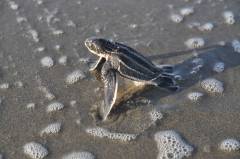
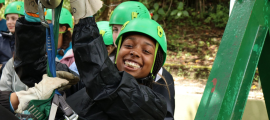
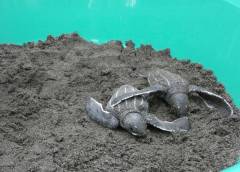
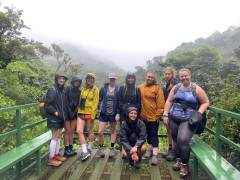
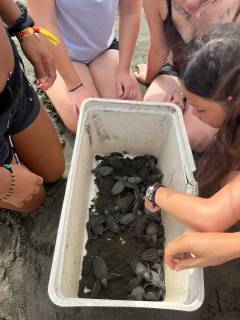
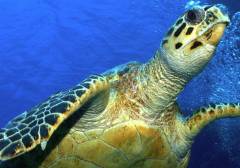
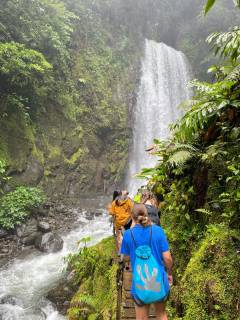
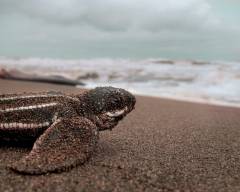
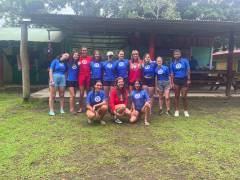
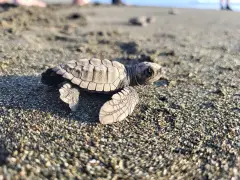
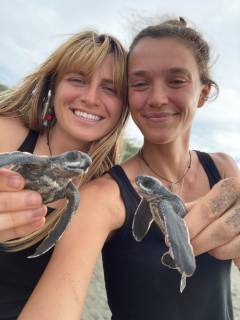
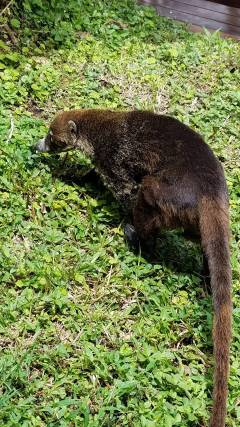
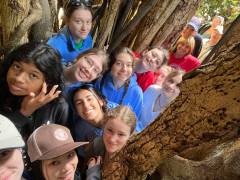
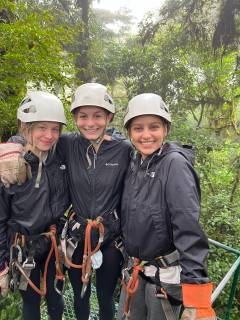
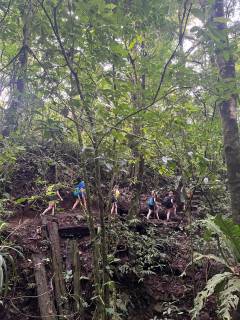
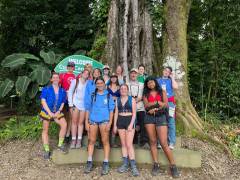
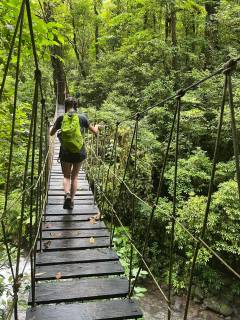
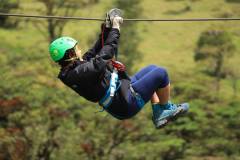
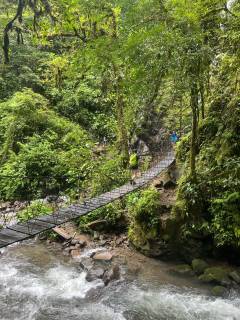
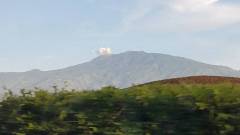
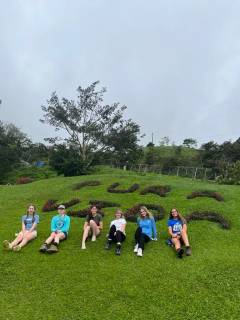
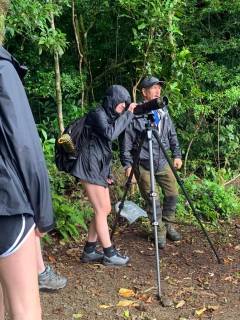
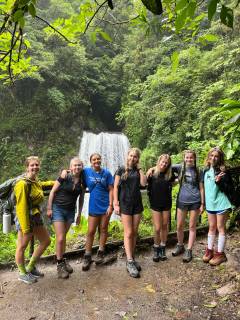
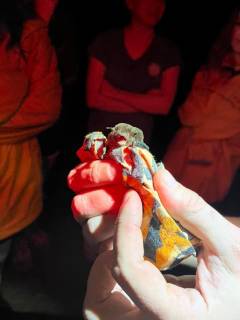
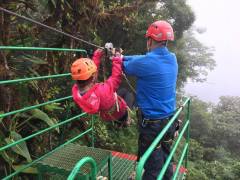
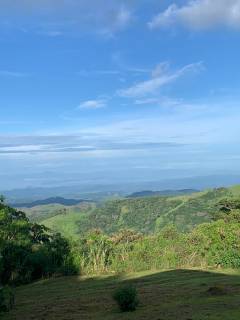
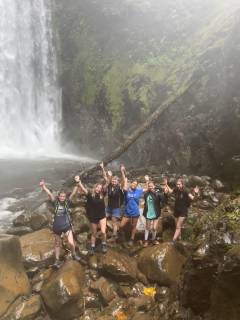
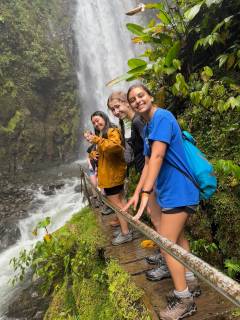
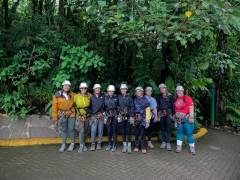
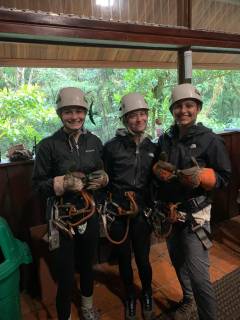

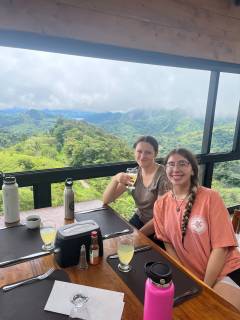
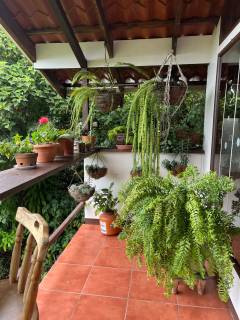

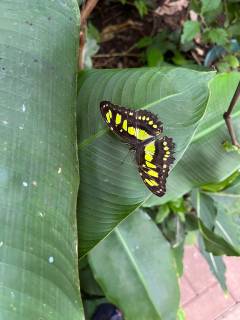
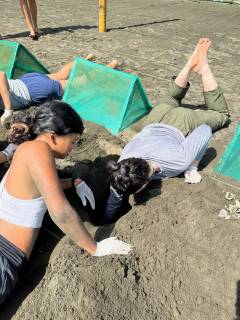
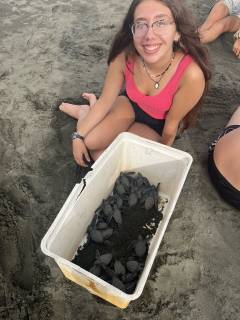
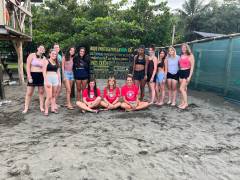
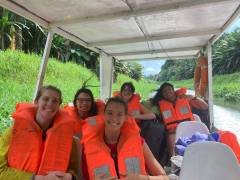
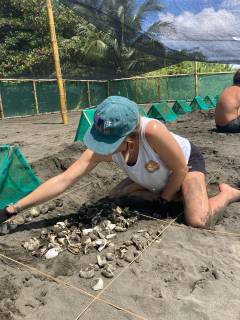
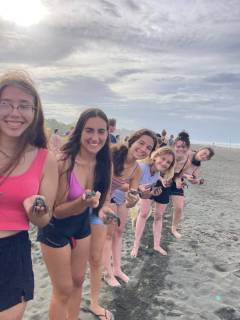
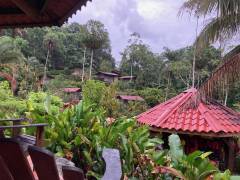






















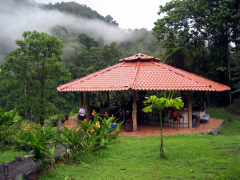
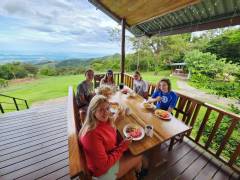
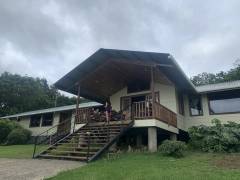
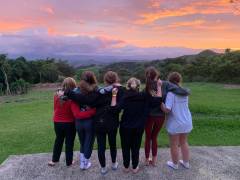
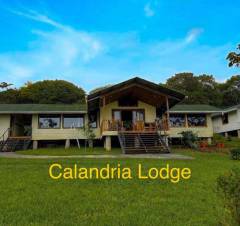
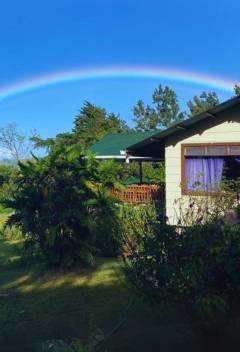
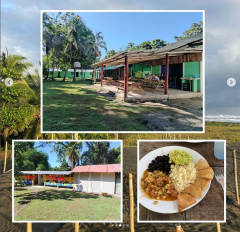
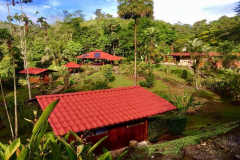
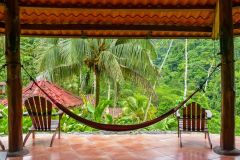
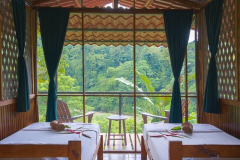
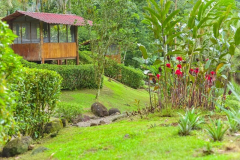
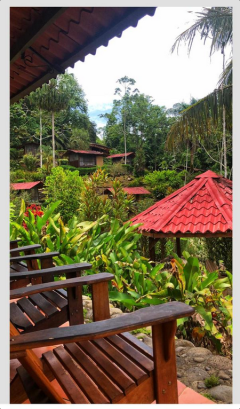
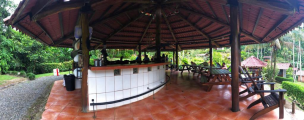
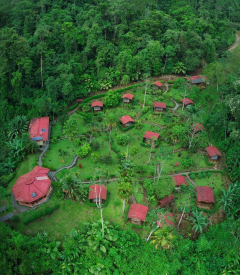
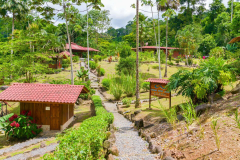
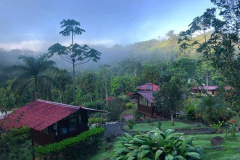
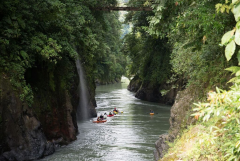
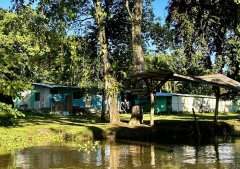
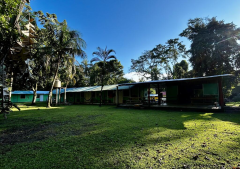
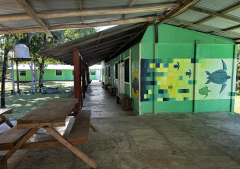
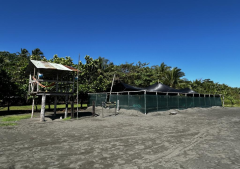
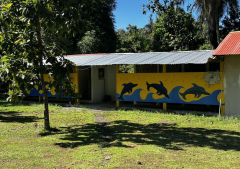


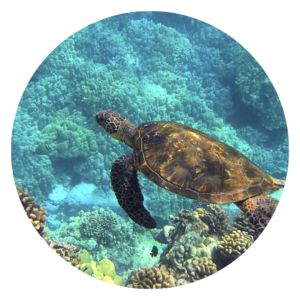

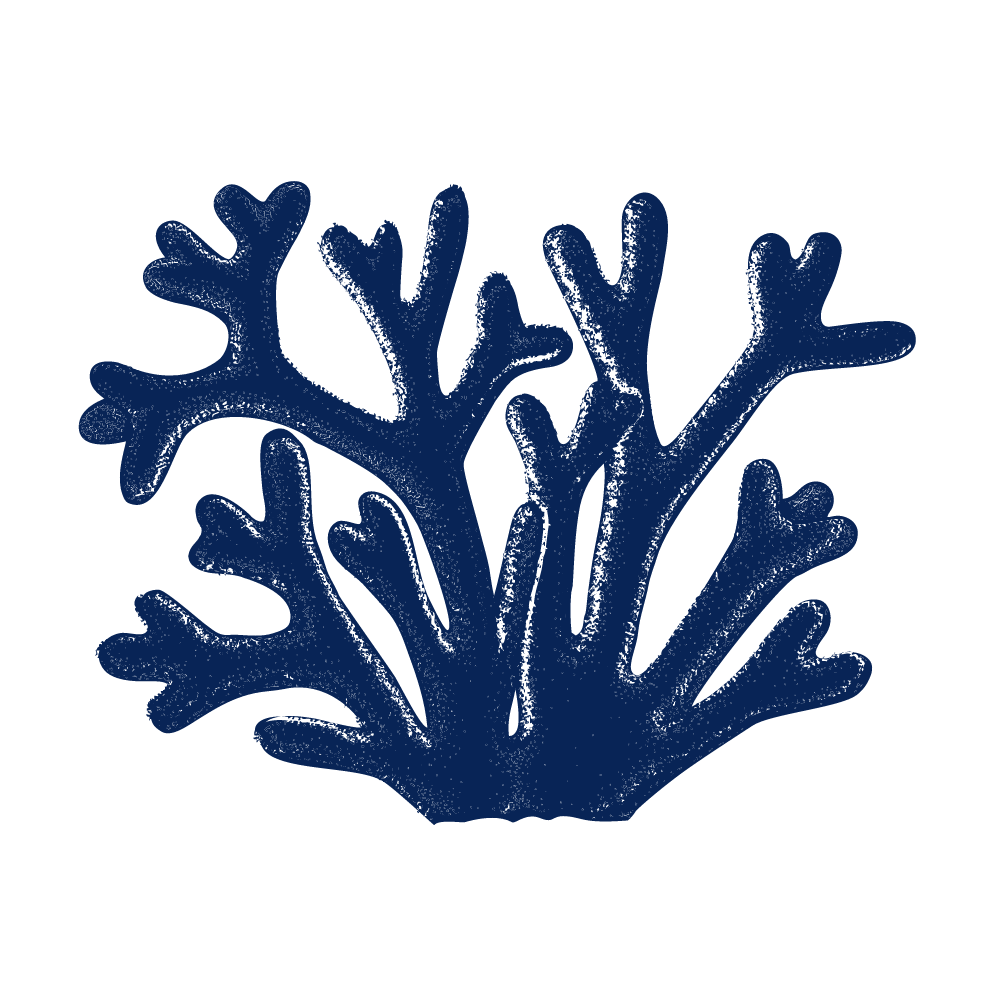 Marine Bio
Marine Bio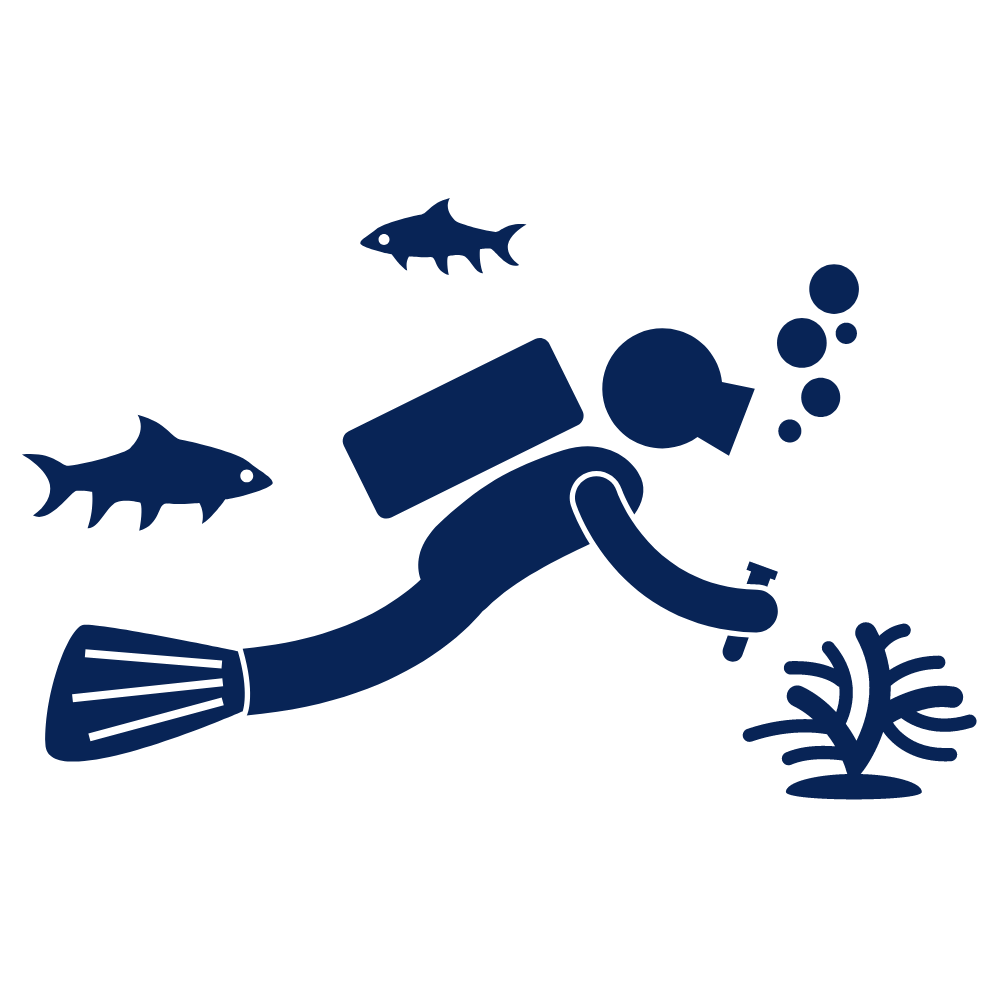 SCUBA
SCUBA Travel
Travel School Groups
School Groups Sign Up
Sign Up CONTACT
CONTACT CAMPS
CAMPS ABOUT
ABOUT